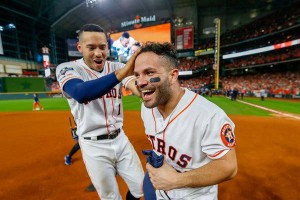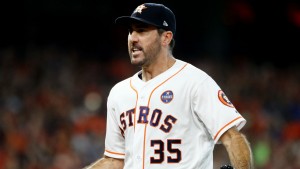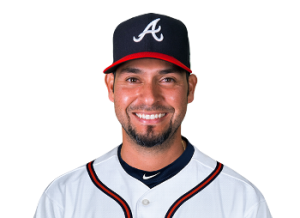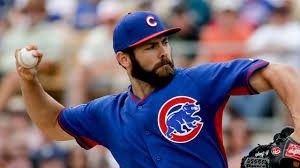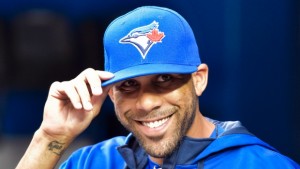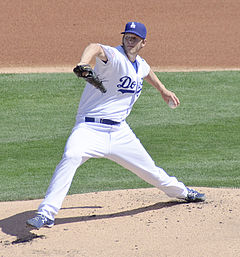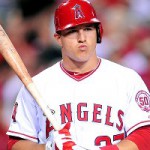A pause to talk about the biggest topic of the off-season; the sign stealing scandals currently rocking the Astros, Red Sox and by association Mets franchises.
Summary: the Astros were found to be relaying the catcher’s signs to a monitor just within the clubhouse, and were able to signal their teammates in near real-time in express violation of an edict from the commissioner. This comes from “whistleblower” Mike Fiers, who was a member of the team and witnessed the situation, which then sparked an investigation and has resulted in:
- 1 year suspension (and subsequent firing) of Astros GM Jeff Luhnow
- 1 year suspension (and subsequent firing) of Astros Manager A.J. Hinch
- Lost of 1st and 2nd round picks in 2020
- Loss of 1st and 2nd round picks in 2021
- $5M fine to the organization
Commissioner’s report is here: http://vendettasportsmedia.com/wp-content/uploads/2020/01/cglrhmlrwwbkacty27l7.pdf
What’s missing here, of course, is any player penalty. And when it came out in the report that this was a scheme “driven by the players, executed by the players” it becomes a little harder to swallow that not one player has been suspended. The “banging” evidence is pretty damning: https://www.espn.com/mlb/story/_/id/28476354/how-internet-helped-crack-astros-sign-stealing-case kind of covers it and has some examples of internet sleuths who found pretty clear examples of it.
Why no player penalties? CBA/Union of course. But also … without hard evidence as to who was doing what, its awfully hard to pin blame on a particular player. So the MLB essentially offered players immunity to testify so they could get to the bottom of the scandal. But if there was direct video evidence of a player doing something nefarious and MLB moved to suspend them, it’d be awfully hard for the MLBPA with a straight face to defend the player at this point.
What’s more upsetting is the newer accusations of Astros players taking this a step further and wearing buzzing devices. I know that MLB issued a statement that they “found no evidence” of this … but the video that’s surfaced and the comments made by the same twitter account that correctly predicted other parts of this scandal are pretty damning:
- Jose Altuve‘s adamance of not having his jersey ripped off: https://www.12up.com/posts/jose-altuve-dont-rip-my-shirt-off-aroldis-champman-walk-off-hr-alcs-astros-yankees-01dyqxcze7n0
- Josh Reddick appearing to have a wire taped to his chest; https://ftw.usatoday.com/2020/01/astros-cheating-scandal-buzzers-new-allegations-altuve-yankees
- Robinson Chirinos‘ having … something … fly off his person and hit Yan Gomes in the mask: https://foxsportsradio.iheart.com/content/2019-11-19-astros-accused-of-using-electronic-buzzers-at-bat-to-signal-certain-pitches
Ok. By themselves each of these links has arguments against. Altuve’s screaming not to tear his jersey off isn’t evidence of anything, but its completely incongruous with his tendency to run around shirtless (as a response to the ridiculous “he’s shy” defense offered by his agent Scott Boras). Reddick’s “confetti” argument … ok, I think I can tell the difference between a piece of plastic and a wire. And, whatever flew off Chirinos’ bat doesn’t seem to be what he claims (an authentication sticker? put on a live game bat?? that’s ridiculous). So … Occam’s Razor here; what the heck is going on?
Let me put this to you a different way. The Astro’s organization ALREADY had an awful reputation for repugnant behavior and top-level arrogance before this stuff all hit ; if they were so brazen as to bang trash cans … would it really surprise you if it was discovered they’d taken it a step further and used electronic buzzer devices?
I’m no conspiracy theorist; I believe in fact checking and that 99% of the time internet meme-driven stories are BS. But this one I can’t shake.
I was chatting with my dad recently, and he asked me if this was the biggest scandal since the Steroids news broke. Part of me wanted to say yes, but mostly I say “no” in that there’s only credible evidence that one or two franchises partook in electronic sign stealing. It isn’t a wide-spread, hundreds of players across the sport issue like the PED issue was. So in that sense, I think we’ll see this go away as an isolated set of incidents. But every franchise has this capability, so It wouldn’t surprise me in the least if we saw more rumors come out.
Do I think the Astros players need to be penalized? Absolutely.
Do I think the franchise should have its World Series title stripped? No. I just can’t see how you do that. This isn’t the NCAA, which routinely vacates wins and titles … ask a USC fan whether they frigging care that Reggie Bush‘s scandal caused them to vacate their wins while he played. Who cares. The WS titles are etched in stone, they’re already paid out and the parades have been held. Do you really think it makes sense to retroactively award the title to the Dodgers from 2017 because potentially one or two guys knew what pitch was coming? Can’t say I think that’s a workable solution.
Something tells me we havn’t heard the last of this … but this is how i’m feeling about it right now. Who said the off-season was boring? 🙂
